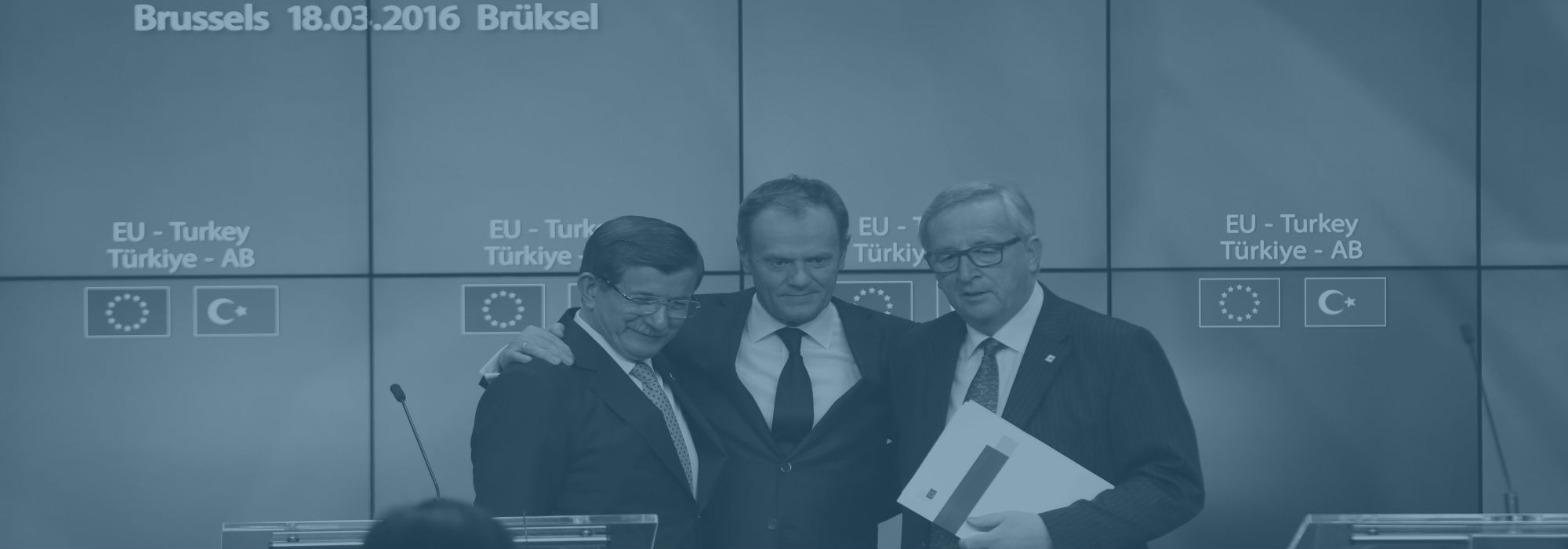By Lili Bayer
German Foreign Minister Frank-Walter Steinmeier is meeting with his Russian counterpart, Sergey Lavrov, today in Yekaterinburg, Russia to discuss the latest escalation in Ukraine and the impasse over Syria. Last week, German State Secretary Markus Ederer rushed to Turkey to, in the words of the German Foreign Ministry, “re-establish direct channels of communication” with the Turkish authorities. Germany has criticized Turkey’s actions following the failed coup, which caused a strain in relations with Ankara. This raised further questions over whether the European Union’s refugee deal with Turkey will be fulfilled.
These meetings are a small indication of a larger problem for Berlin: it is facing a growing number of crises, at home and abroad, that it has limited power to address. For Germany, stability in Ukraine and the European Union’s agreement with Ankara on refugees are key priorities. Surrounded by instability, Germany is attempting to play a leadership role in resolving regional crises, but finding that in reality Washington – and not Berlin – holds the cards. Germany’s ability to shape Russia’s actions in Ukraine and Turkey’s trajectory is limited.
For Germany, stability in Ukraine is key. Last week, Russia accused the government in Kiev of conducting a raid in Russia-controlled Crimea and threatened to call off planned talks with Ukraine, Germany and France. Since the annexation of Crimea and outbreak of hostilities in eastern Ukraine in 2014, Germany has attempted to position itself formally as a mediator in the conflict, leading rounds of negotiations between Russia and Ukraine.
Berlin has sought this role not only because of concerns regarding conflict on Europe’s periphery, but more importantly because Germany fears that an escalation in Ukraine would exacerbate the EU’s fragmentation. The German government is aware that there are already serious divisions within the EU on issues ranging from refugee policy to economic and security matters. Increased Russian aggression in Ukraine would deepen divisions between countries (like the Baltic states and Poland) that see Russia as an existential threat and countries (mainly in southern and Western Europe) for whom Russia is a secondary challenge.
While Germany has sought to act as a mediator in the conflict, Berlin’s ability to influence Moscow or play a significant role in negotiating a deal is limited. European governments’ main tool for shaping Russia’s behavior is the sanctions regime currently in place. However, sanctions are now a relatively minor thorn in Russia’s side compared with low oil prices, which are the primary cause of the country’s economic woes – and which Germany cannot control. While Germany and France are the main formal negotiators between Russia and Ukraine, Berlin is not in a position to help deliver or guarantee the key compromises Moscow is seeking.
Instead, the U.S. is playing the dominant role in the negotiations. The Kremlin would like guarantees that Ukraine would remain a neutral power and would not join NATO or receive significant military assistance from the West. While Germany in the past has politically supported pro-Western forces in Ukraine, it is not a military player in the region. A deal negotiated by Berlin would be worthless, from Russia’s perspective, without America’s formal or informal agreement.
A similar dynamic is at play when it comes to Germany’s relationship with Turkey. The refugee crisis has highlighted the incoherence of decision-making in the EU and deepened the bloc’s unpopularity among many of its citizens. The European Union’s deal with Turkey, reached in March, is Europe’s key mechanism for reducing the flow of refugees into the bloc. In return for taking back refugees, Turkey was promised not only funding, but – if it meets 72 criteria outlined by the EU – visa-free travel to the Schengen Zone. The idea of visa-free travel for Turkish citizens is not only deeply unpopular among European voters, but has also sparked security concerns among European policymakers. The fulfillment of all the agreement’s terms looked to be a difficult feat even at the time the agreement was signed. Following the failed coup in Turkey, both sides understand – even if they do not admit it publicly – that visa-free travel is off the table.
Turkish authorities have threatened to abandon the migrant deal with the EU if progress on visa-free travel is not achieved, but in reality they are probably seeking other concessions. However, Berlin has relatively few concessions to offer Turkey, other than funds. And while Turkey would gladly take the money, Ankara’s wish list of concessions from the West primarily revolves around security issues, especially when it comes to NATO and Syria. Turkey is engaged in negotiations with Moscow, Washington and the EU (represented primarily by Berlin). But Turkey’s approach to each of these three relationships changes based on what Turkey thinks will get it the best deal. When Ankara threatens to in effect reignite a large-scale refugee crisis in Europe, it knows that its actions are being evaluated not only in Berlin and Brussels, but also in Washington.
Berlin is concerned about stability in Ukraine and Turkey’s moves, but highly publicized diplomatic talks mask Berlin’s limited options. Germany may be a key player in Europe and the Continent’s largest economy, but when it comes to negotiations with Ankara and Moscow, it is the U.S., and not Germany, that is in a position to make deals and alleviate crises.






 Special Collection – The Middle East
Special Collection – The Middle East